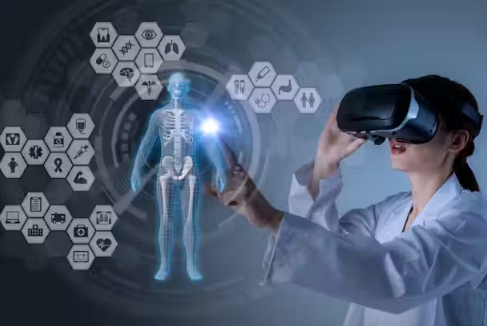Revolutionizing Healthcare: How VR is Transforming Medical Training
Virtual Reality (VR) technology is revolutionizing the way medical professionals are trained, providing immersive and realistic experiences that enhance learning and skill development.
Enhanced Simulation
VR allows medical students and professionals to engage in highly realistic simulations of medical procedures, surgeries, and patient interactions, providing valuable hands-on experience in a controlled environment.
Improving Patient Outcomes
By honing their skills in a virtual environment, medical professionals are better prepared to handle real-life medical situations, ultimately leading to improved patient outcomes and safety.
Cost-effective Training
VR training programs are cost-effective compared to traditional training methods, as they eliminate the need for expensive equipment and resources, while providing a high level of engagement and retention.
Access to Specialized Training
VR technology enables medical professionals to access specialized training and experiences that may not be readily available in traditional educational settings, expanding their knowledge and expertise in various medical fields.
Personalized Learning
VR allows for personalized learning experiences tailored to individual needs and learning styles, enabling medical professionals to progress at their own pace and focus on areas where they need improvement.
The Future of Medical Training
As VR technology continues to advance, the possibilities for medical training are endless, with potential applications in surgical simulations, patient consultations, and remote training opportunities for medical professionals around the world.
In conclusion, VR is transforming the field of medical training by providing immersive, realistic, and cost-effective learning experiences that enhance the skills and knowledge of medical professionals, ultimately leading to improved patient outcomes and safety.

